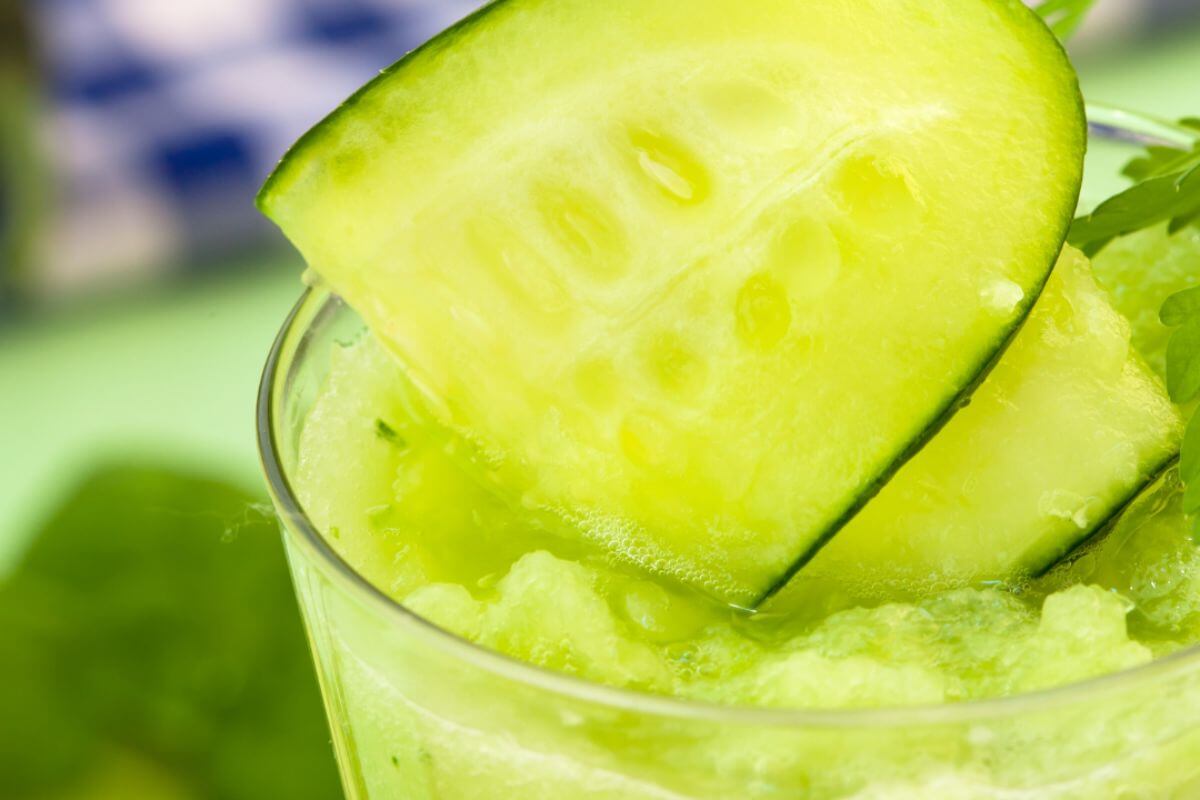Fermented foods may sound like a trendy new health craze, but they’ve existed for thousands of years. Our ancestors relied on fermentation as a way to preserve and enhance the flavour of food long before refrigeration was invented.
Fermented foods like yoghurt, sauerkraut, and kimchi are now experiencing a resurgence in popularity, and for a good reason. Not only do they add a delicious tangy flavour to meals, but they also offer a host of health benefits.
So, let’s delve deeper into fermented foods and explore why they’re becoming a staple in many people’s diets.
How Fermented Foods Affect Gut Health
Have you ever heard the phrase “you are what you eat”? Well, it turns out that your gut microbiota, the millions of microorganisms that live in your digestive system, play a vital role in your overall health. And one way to keep your gut microbiota healthy is by incorporating fermented foods into your diet.
Fermented foods contain live, active cultures of bacteria and yeasts that help to break down the food and create a variety of compounds that benefit your gut. These compounds include short-chain fatty acids, which help to reduce inflammation and improve the integrity of the gut lining, as well as vitamins and minerals that are more easily absorbed by your body.
Studies have shown that a healthy gut microbiota can have a positive impact on a wide range of health conditions, from digestive issues to mental health disorders. By consuming fermented foods, you are essentially introducing beneficial bacteria into your gut, which can help to support the growth of the existing microorganisms and keep your gut microbiota in balance.
So, what are some examples of fermented foods that you can incorporate into your diet? Dairy products like yoghurt and Cottage Cheese, vegetables like sauerkraut(finely Cut Raw Cabbage) and kimchi, and beverages like kombucha(tea) and kefir water are all great options. These foods are not only delicious and versatile, but they also offer a host of health benefits that can help you feel your best.
In short, fermented foods are a simple and tasty way to support your gut health and overall well-being. By nourishing your gut microbiota with the right foods, you can improve your digestion, reduce inflammation, and even boost your immune system. So why not give fermented foods a try and see how they can benefit your health?
Types of Fermented Foods and Their Benefits
When it comes to fermented foods, the possibilities are endless! From tangy yoghurts to fizzy kombucha, there’s a fermented food for every palate. And the best part? These delicious foods are packed with health benefits that can support a happy gut and overall wellness. Let’s take a closer look at some of the most popular types of fermented foods and what they can do for you.
First up, we have dairy products like yoghurt, kefir, and cheese. Not only are these foods delicious and versatile, but they also contain beneficial probiotics that can help keep your gut in tip-top shape. Yoghurt and kefir, in particular, are great sources of live cultures that can boost your digestive health and support a strong immune system. And who doesn’t love a good cheese board?
Next, we have a selection of tangy and crunchy fermented vegetables, including sauerkraut, kimchi, and pickles. These foods are not only delicious and satisfying, but they’re also high in fibre and vitamin C. They can even help improve your digestion and promote healthy bowel movements. Plus, with so many flavour options available, there’s a fermented veggie for everyone!
If you’re more of a bread lover, don’t worry – there are plenty of fermented grains to choose from too! Sourdough bread is a popular option that’s been around for centuries. This bread is made with a natural starter that ferments over time, resulting in a tangy and slightly sour flavour. And if you’re looking for a protein-packed meat alternative, tempeh (made from fermented soybeans) is a great option. It’s rich in nutrients like iron and calcium, and it has a nutty, earthy flavour that’s perfect for stir-fries and salads.
Last but not least, we have fermented beverages like kombucha and kefir water. These fizzy, flavorful drinks are a great way to hydrate while also supporting your gut health. Kombucha, for example, is made from fermented tea and can help boost your energy levels and improve your digestion. Kefir water is similar to kombucha but is made from fermented coconut water. It’s low in sugar and packed with beneficial probiotics that can keep your gut flora happy and healthy.
Scientific Evidence Supporting the Benefits of Fermented Foods
Did you know that your gut health plays a crucial role in your overall well-being? And that fermented foods can help improve your gut health? But don’t just take our word for it – there’s scientific evidence to back it up.
Numerous studies have been conducted on the effects of fermented foods on gut microbiota, which refers to the trillions of microorganisms that live in your gut. These microorganisms play a vital role in digestion, immunity, and overall health. And research has shown that consuming fermented foods can help promote the growth of healthy gut bacteria, which can lead to improved gut health.
But it’s not just gut health that benefits from fermented foods. Studies have also shown that consuming fermented foods can have a positive impact on various health conditions, such as type 2 diabetes, obesity, and even mental health issues like depression and anxiety.
So, next time you’re reaching for that sugary snack or processed food, consider swapping it out for a serving of fermented veggies or a cup of kombucha. Your gut (and the rest of your body) will thank you!
Additional Benefits of Fermented Foods
One of the nourished benefits of fermented foods is their ability to increase nutrient absorption. Fermentation breaks down the nutrients in food, making them easier for our bodies to absorb and utilize. This means that by incorporating fermented foods into your diet, you can ensure that you are getting the most out of the nutrients you consume.
Similarly to boosting nutrient absorption, fermented foods also have the power to boost your immune system. The gut microbiota plays a crucial role in our immune function, and fermented foods have been shown to help promote the growth of beneficial bacteria in the gut. By supporting a healthy microbiome, fermented foods can help protect against illness and disease.
Another benefit of fermented foods is their ability to reduce inflammation. Chronic inflammation has been linked to several health issues, including heart disease, diabetes, and even cancer. Fermented foods contain beneficial bacteria that can help reduce inflammation in the gut and throughout the body.!
Incorporating Fermented Foods into Your Diet
Adding fermented foods to your diet doesn’t have to be a daunting task! Here are some tips to help you incorporate these tasty treats into your daily meals.
Tip #1: Start Small
If you’re new to fermented foods, start by adding a small amount to your meals. For example, a spoonful of sauerkraut or kimchi on your sandwich or salad can go a long way. This will help you get used to the taste and prevent any digestive discomfort.
Tip #2: Experiment with Different Types of Fermented Foods
There are many different types of fermented foods to choose from, such as kefir, yoghurt, miso, and kombucha. Don’t be afraid to experiment with different flavours and textures to find what you like best.
Tip #3: Incorporate Fermented Foods into Your Daily Routine
Make fermented foods a part of your daily routine by incorporating them into your meals or snacks. For example, you could have yoghurt with fruit and granola for breakfast or a side of pickled vegetables with your lunch.
Tip #4: Make Your Fermented Foods at Home
Making your fermented foods at home is not only cost-effective but also allows you to customize the flavours to your liking. Start with something simple, like homemade sauerkraut or kombucha, and work your way up to more complex recipes.
Incorporating fermented foods into your diet is a great way to boost your gut health and overall well-being. With these tips, you’ll be on your way to enjoying the delicious flavours and health benefits of fermented foods in no time. So why not give it a try and see how it can benefit you?
Closing words
Fermented foods are a delicious and effective way to support your gut health. They contain beneficial probiotics and other nutrients that can improve digestion, boost your immune system, and reduce inflammation. From sauerkraut to kefir, there are so many different types of fermented foods to choose from, so why not try incorporating them into your diet today? Start small, experiment with different flavours, and even try making your fermented foods at home. Your gut will thank you for it! So, next time you’re in the grocery store, take a stroll down the fermented food aisle and see what catches your eye. Your taste buds and your gut will thank you.









